Help your students identify and explore common emotions with this engaging digital activity.
Get Your Students Identifying Emotions
As adults, we understand that emotions are a normal part of being human. Through the course of our lives, we will experience sadness, joy, anger, embarrassment, frustration, excitement, and everything in between! Being able to name our emotions in this way can be a powerful tool when it comes to dealing with these feelings in a healthy and productive way. It is therefore important that we teach this emotional awareness to our students as early as possible!
This digital resource has been designed by our experienced teacher team to help your students identify emotions in others and in themselves. It uses real-world, age-appropriate scenarios and body cue information to help your students identify what the child in the story is feeling. For example:
Santiago and Mateo are best friends. One day, Santiago tells Mateo that he does not want to be friends anymore.
Mateo feels tears welling up in his eyes.
What emotion best fits how Mateo is feeling?
Three multiple-choice options are provided. If students choose the incorrect answer, they are directed to a “Try again” slide, which allows them to return to the previous question for another attempt. If the student chooses the correct answer, they are directed to a “Well done!” slide and progress to the next scenario. The resource includes ten scenarios in total.
The emotions included in this resource are: sad, nervous, angry, excited, embarrassed, calm, scared, confused, annoyed, proud.
Use the dropdown menu to access the Google Slides resource. Be sure to operate the presentation in Slideshow mode to enable the interactive features.
This resource makes a great addition to your lessons on emotional awareness. By helping your students recognize emotions in themselves and others, you are equipping them with essential life skills that will serve them well in both their academic and personal lives.
Teach Your Students How to Identify Emotions
As previously mentioned, teaching your students how to recognize emotions in themselves and others is a skill that will remain with them throughout their lives.
This process does not have to be an arduous or complicated one! Here are a couple of easy practices you can implement into your established classroom practices to make emotional awareness a regular part of your daily routine:
- Daily Check-In – Make daily check-ins a part of your everyday routine. A set of emotions posters where students add their names based on how they are feeling is a simple but effective way of having your students tap into their own and others’ feelings each morning.
- Personal Mood Meters – Mood meters are a more subtle way for students to communicate their emotional state to their teacher and peers. They are placed on the students’ desks and can be changed throughout the day. Spinners are a great option for personal mood meters.
Download This Identifying Emotions Resource
Use the Download button above to access the Google Slides version of this resource. (Note: You will be prompted to make a copy of the Google Slides template before accessing it.)
Project the resource onto your screen and work through the slides as a class for a paperless lesson on emotional awareness!
More Resources on How to Identify Emotions
Looking for more activities to enhance your students’ emotional awareness? Explore this great selection of teacher-created resources!
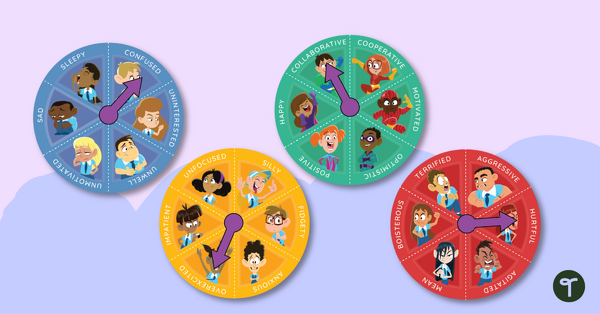
teaching resource
Emotional Self-Regulation – Student Emotion Mood Meter
Allow your students to communicate how they are feeling using a non-verbal, desk-sized mood meter.
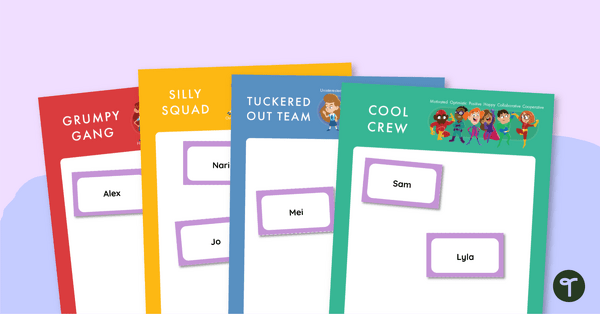
teaching resource
Emotional Self-Regulation Check-In Posters
Promote emotional awareness and self-regulation in your classroom with this daily mood check-in routine.
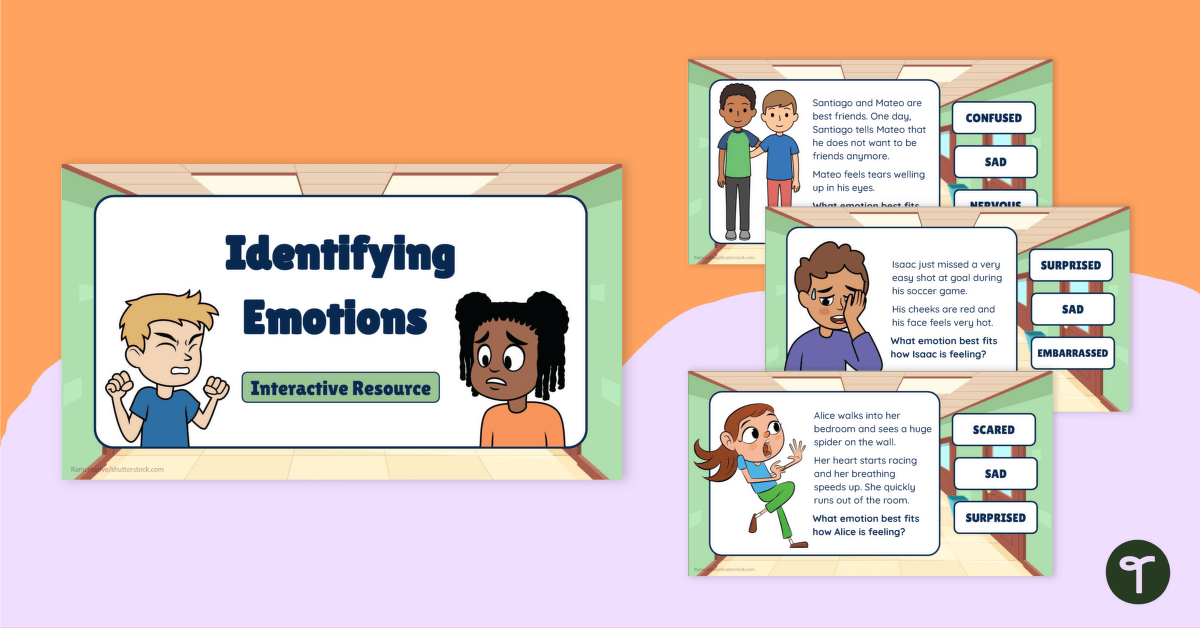

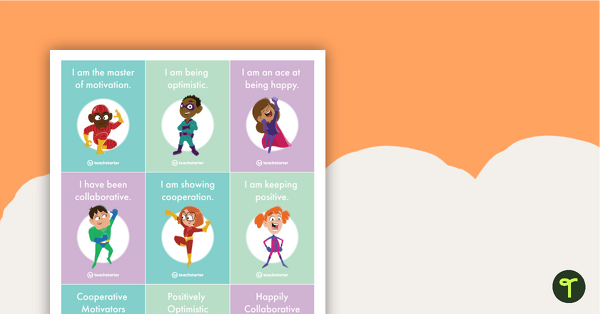
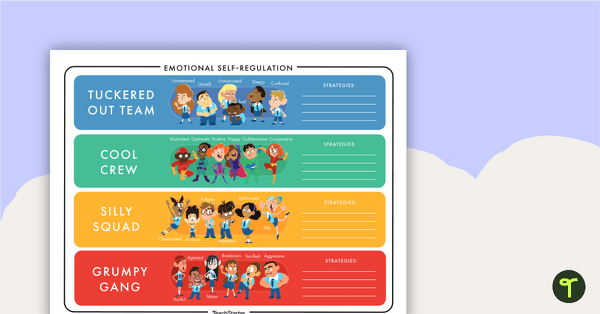
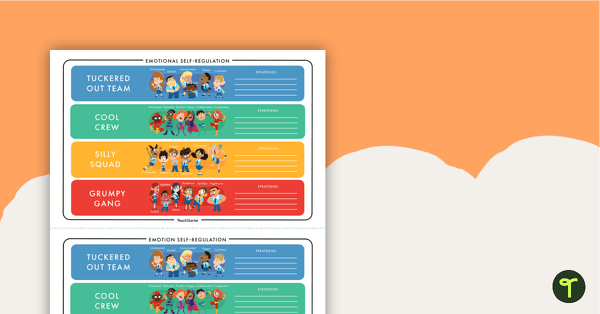
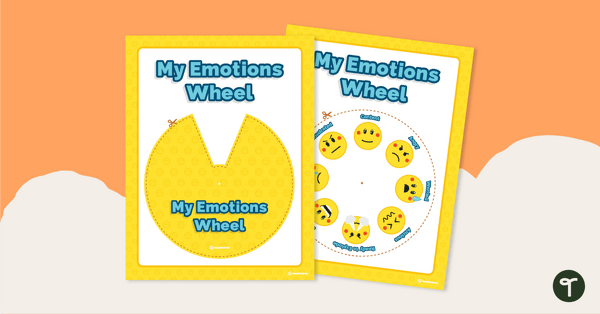
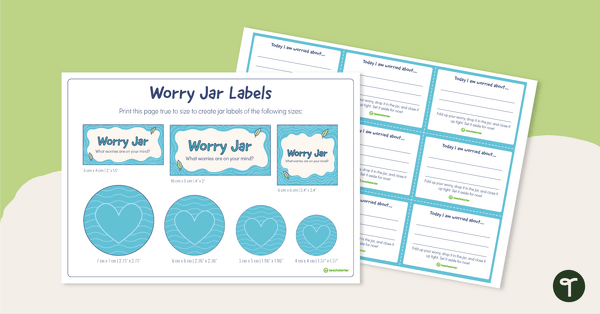
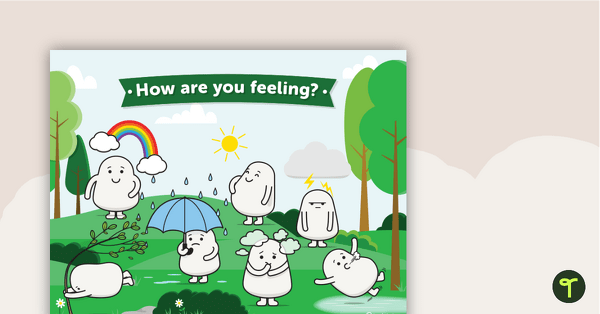
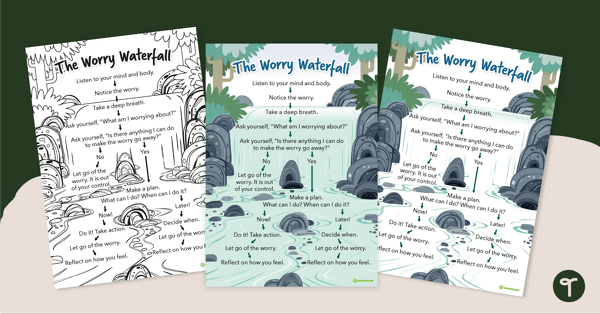
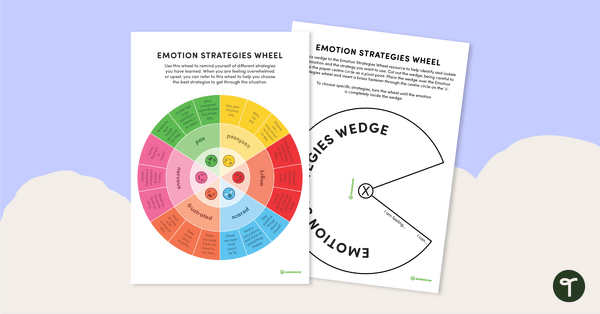
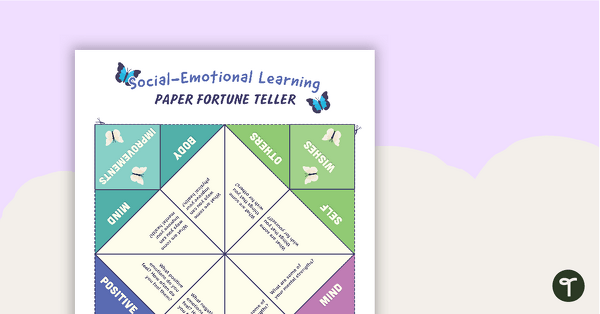
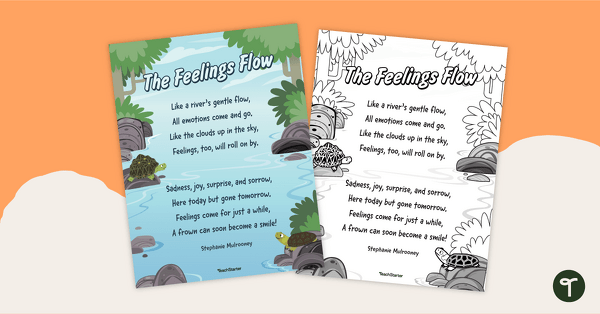
0 Comments
Write a review to help other teachers and parents like yourself. If you'd like to request a change to this resource, or report an error, select the corresponding tab above.